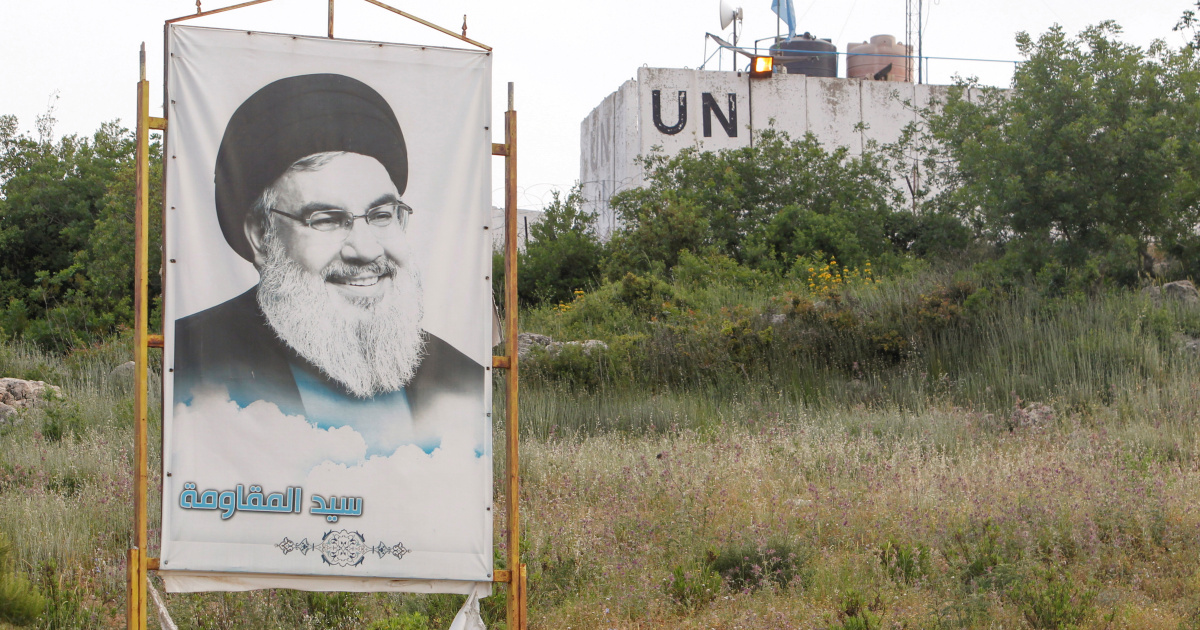US imposes sanctions on seven Lebanese men connected to Hezbollah

The United States Treasury Department has sanctioned seven Lebanese people connected to Hezbollah and its banking arm for illicitly transferring $500m on behalf of the Iran-backed group.
The US Treasury on Tuesday named Ibrahim Ali Daher, the chief of Hezbollah’s finance operation and six other men who allegedly used personal accounts at Lebanese banks, including Jammal Trust Bank, to evade US sanctions.
The other six individuals named are: Ahmad Mohamad Yazbeck, Abbas Hassan Gharib, Wahid Mahmud Subayti, Mostafa Habib Harb, Ezzat Youssef Akar and Hasan Chehadeh Othman.
The US action blocks any assets the individuals may hold in US financial institutions and prevents future interbank transactions involving the US banking system and correspondent banks worldwide.
The sanctions came as Lebanon, where Hezbollah is an established political party, has been undergoing a continuing economic and political crisis. A spokesman for Hezbollah could not be reached immediately for comment.
A member of Kataib Hezbollah paramilitary group holds a Hezbollah flag ahead of the annual Quds Day, or Jerusalem Day parade during the Muslim holy month of Ramadan, in Baghdad, Iraq on May 6 [Thaier Al-Sudani/Reuters] The seven men “have all participated in evasive ‘shadow’ banking activity” through Hezbollah’s financial firm Al-Qard al-Hassan, the Treasury said in a statement on Tuesday.
“From the highest levels of Hezbollah’s financial apparatus to working level individuals, Hezbollah continues to abuse the Lebanese financial sector and drain Lebanon’s financial resources at an already dire time,” Andrea Gacki, the US Treasury’s director of foreign assets control, said in the department’s statement.
US Secretary of State Antony Blinken issued a statement in support of the sanctions saying Hezbollah poses a threat to the US and its allies in the Middle East.
“By hoarding cash that is desperately needed by the Lebanese economy”, Secretary Blinken said, Hezbollah seeks “to build its own support base and compromise the stability of the Lebanese state.”
In February, Lokman Slim, a prominent Lebanese activist known for his opposition to Hezbollah, was found dead in his car in the country’s south. He had been shot twice in the head.
In 2020, the US expanded its sanctions on Hezbollah, blacklisting former transport and finance ministers for providing financial help to the group, which for years has been finding ways around US restrictions.
The US sanctioned top Lebanese politician and Hezbollah ally Gebran Bassil over alleged corruption, making him the highest-profile target of anti-Hezbollah sanctions to date.
Bassil, a former foreign minister, is Lebanon President Michel Aoun’s son-in-law and also the head of the party with the largest bloc in parliament, the Free Patriotic Movement. He is considered a leading potential candidate for president in the next elections in two years.
Hezbollah has been designated by the US and 12 other nations as a “terrorist” organisation for its hardline operations. Ten countries including China, Russia, Iran and Syria have said they do not consider Hezbollah to be a terrorist organisation.






